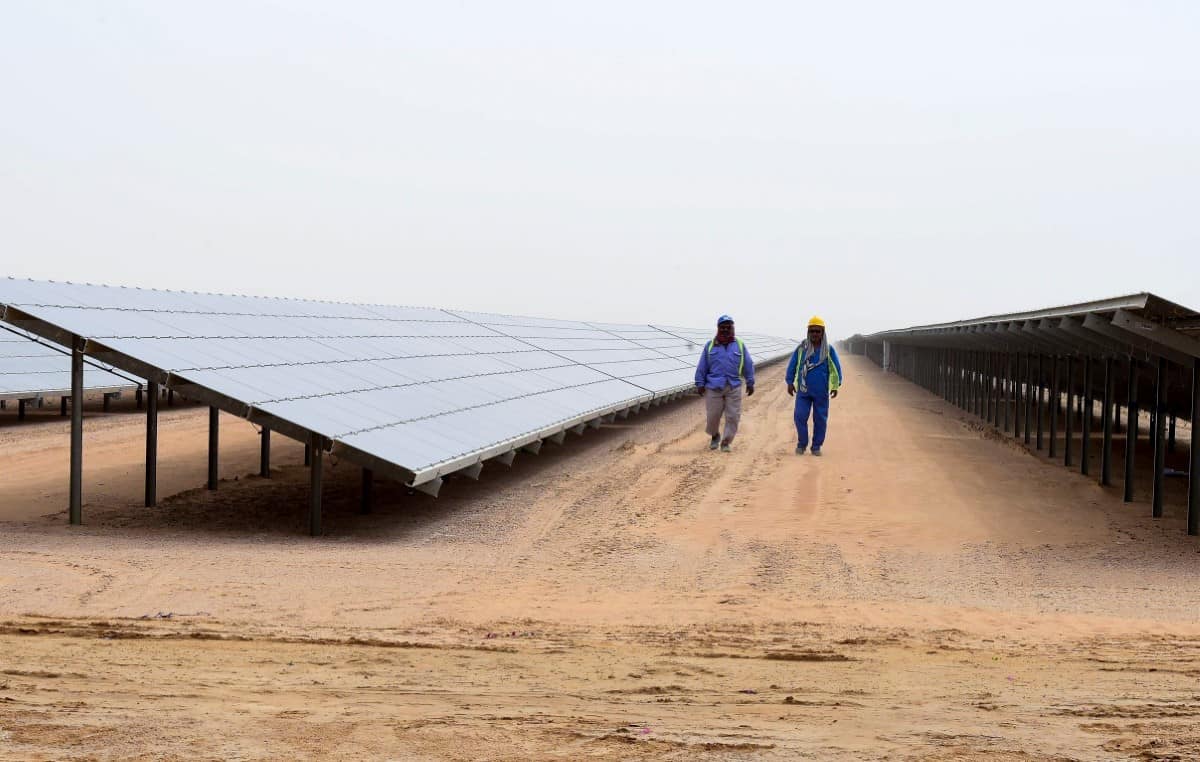ABU DHABI, UAE — Located in the heart of the global sunbelt, GCC countries have some of the highest solar exposures in the world.
Solar power plants in the region can expect 1,750 to 1,930 hours of full-load operation per year. Contrast this with solar plants in Germany, which register, on average, only 940 hours of full-load operation per year. A solar-photovoltaic panel in a GCC country produces twice as much output as it would in Germany or any similar European country.
During an interview on the sidelines of Abu Dhabi Sustainable Week with Bill Lenihan, CEO of ZOLA Electric, a solar and batteries solution provider, stated that the region’s leaders understand the benefits of solar energies and how renewable energy sources, such as solar, could work very well alongside the base market of oil and gas.
“I see a lot of enthusiasm for solar energy,” he told TRENDS, adding that during his first visit to the Middle East and participation in Abu Dhabi’s sustainable week, he met with some great and influential people, ranging from government officials to financing sources to companies that operate here, who are very aware of the benefits of solar, which has become cost parity, if not cheap, with fossil fuels.
“Solar has become a very low-cost energy source, particularly in the Middle East, where there is plenty of sun, and it is sustainable. So as a result, solar energy is affordable and sustainable in the region and is also a low-carbon energy source. So, the advantages are substantial,” he said.
However, Lenihan stated that there is still much work to be done in the region and globally to achieve energy sustainability by 2030.
“It’s a complicated process that will take a little bit longer time because transitioning into 100% sustainability requires a distribution mechanism to ensure reliable, sustainable energy sources.
Zola Electric targets emerging markets where people continue to lack access to reliable and affordable energy.”
Founded in 2011 by Erica Mackey, Xavier Helgesen, and Joshua Pierce, Zola Electric initially offered solar home solutions to off-grid rural communities in Tanzania.
Since then, the company has evolved and discovered that its initial product could only serve some of the markets of customers it sought, whether off-grid or on-grid, rural or urban, or residential or commercial.
Zola has expanded over 10 countries and is now a technology company whose products can solve energy access problems in nearly any market. Their products can now power any home or office appliance while integrated with any energy source — grid, solar, or battery.
“Our systems are significantly more powerful than they were in the past, allowing us to electrify homes, clinics, schools, and businesses. Lenihan stated. “We have a family of hardware and software solutions that allow us to build the grid in a distributed manner.” About a year ago, the company began to selectively expand outside of its core markets in Africa, entering Middle Eastern countries such as Egypt and soon Lebanon and other countries such as the Philippines, Haiti, and New Guinea.

